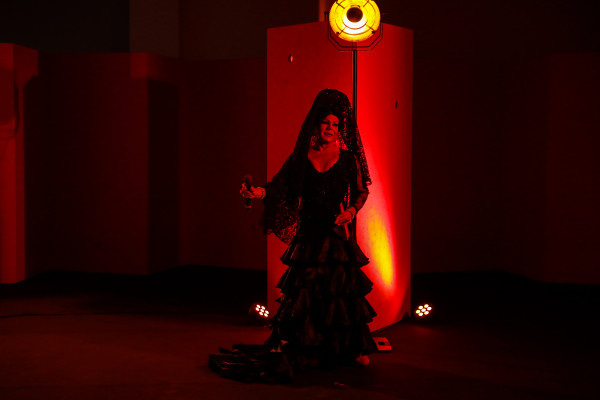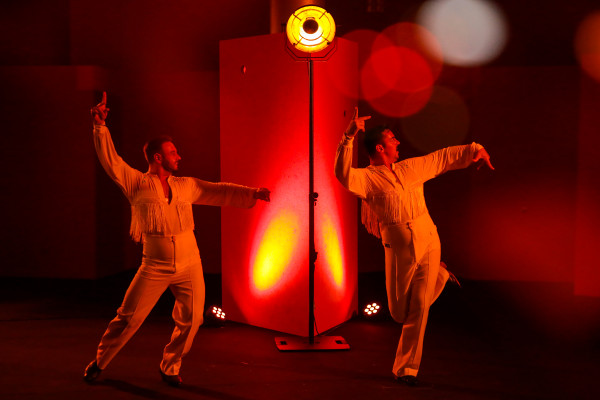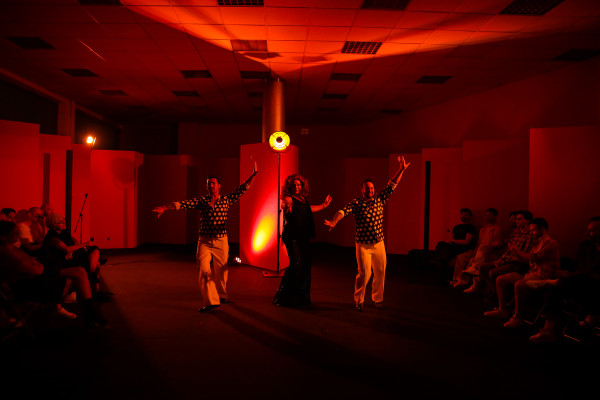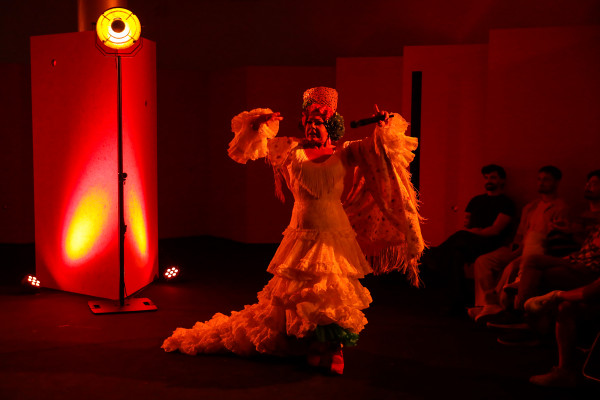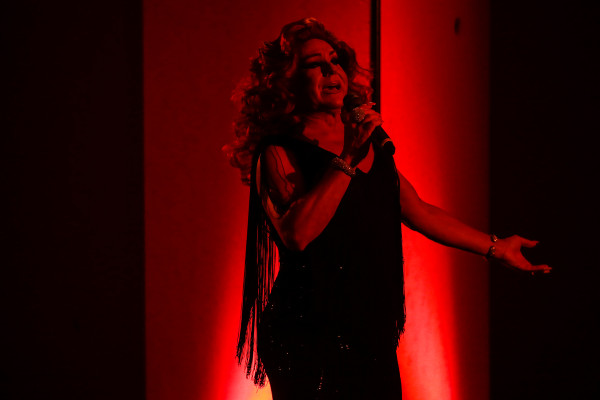The unavoidable figure of transformism in Portugal has a name, and it can only be Deborah Krystall. The alias of Fernando Santos, artistic director and performer at the iconic Finalmente Club, has given rise to its fundamental principle: “you may call it madness, but we believe that what we do is culture”.
Her career is inseparable from the recent history of Lisbon’s queer scene. After 25 April 1974, transformism moved beyond carnival, theatre and private parties to establish itself as a public spectacle. It was in this context that Deborah Krystall consolidated her rigorous and original work. Together with her team, she imposed rules of quality and structure on the shows, insisting on the distinction between the character on stage and the artists’ personal lives. The goal was clear: to be recognised as art, not as marginality.
With Romi Ibérica, the performer takes us on a sensory journey through the musical roots of the Iberian Peninsula. Between grace and deception, between the fate of the fado singer and gypsy freedom, the performance transforms the stage into a mixed territory, where music becomes theatrical gesture. Accompanied by a guest dancer, Deborah Krystall summons the intensity of the body in motion, prolonging the vibrato of each song in dance.
At BoCA Bienal, Romi Ibérica is presented as a concert-performance, revealing the rigour and inventiveness that Deborah Krystall has been asserting for decades at the iconic Finalmente Club in Lisbon. An invitation to breathe in the living memory of the Iberian axis, where every song and every gesture carries the indomitable beauty of a destiny that is sung to continue to exist.
Deborah Krystall
Romi Ibérica
9 October
Lisboa – Espaço BoCA Biennial 2025 Concert, performance
- Sessions
09.10.25
Espaço BoCA, Lisboa
21:30
- Programming
- BoCA - Biennial of Contemporay Arts (Lisboa)
- Tickets
- €7 (general) / €5 (arts professionals, youth -30 and students)
- Duration
- 40 min.
- Support
- Junta da Freguesia da Misericórdia
- How to get there
-
Espaço BoCA is located between Santos and Cais do Sodré.
Entrance at Rua do Instituto Industrial 14, 1200-225 Lisbon.
